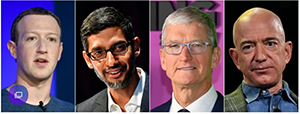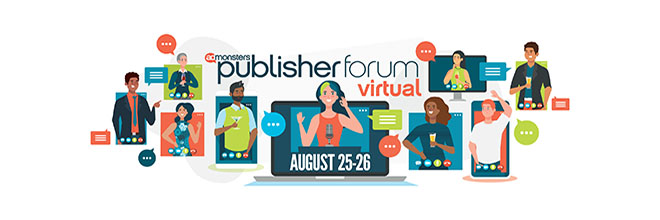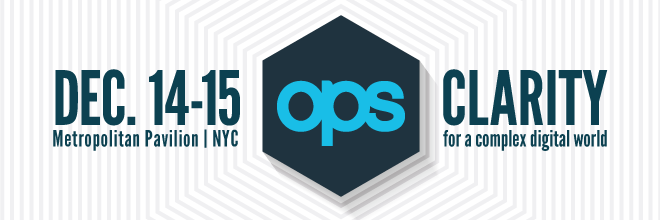 |
|||||||||||||||
|
|||||||||||||||
| Facebook Problems: Real Brands, Fake Ads |
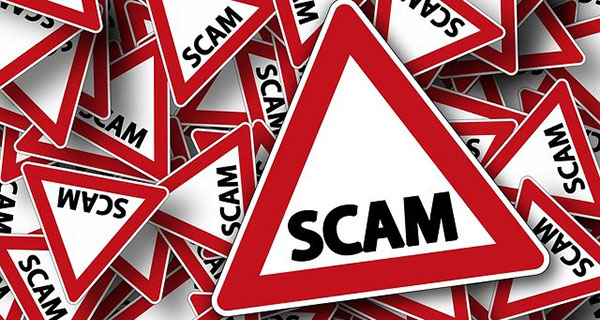 |
|
Facebook is ankle-deep in troubles as of late. For one, I’m sure we’ll all be checking into the live stream of the big tech antitrust hearings taking place tomorrow to hear Zuck tell Congress how much America needs his company to be really fit in order to stave off undue Chines social media influences. Senior Editor, Lynne d Johnson, already has her dragon popcorn at the ready. But these are not the Facebook issues we’re referring to. There's a big question here: If publishers can find solutions to fight scummy ads, why can't Facebook? |
|
If you pay careful attention to how we outlined all of Facebook’s current conundrums in this one post, you might have caught on that the focus isn’t only Facebook's fake ads' mess. Facebook is one cocky son of a B, as evidenced by how Zuck plans to deal with Congress. Even his initial response to the ACCC sounded as if the company never intended to pay any publisher for news content, citing that it has minimal revenue impact. |
| BAD Ads Act Bullies 230 |
| Woo, hoo, it’s finally here—legislation that could remove immunity protections under Section 230 related to behavioral advertising! Oh, wait, big sorry, that probably sounded like we had good news to share. It was more sarcasm, because, well, we expected it. The bill, “Behavioral Advertising Decisions Are Downgrading Services (Bad Ads) Act,” introduced by Republican Senator Josh Hawley, would clamp down on invasive data gathering by the duopoly used for behavioral targeting (and any other big tech company with either 30 million users in the U.S. or 300 million worldwide and $1.5 billion in global revenue). Just in case you forgot, Section 230 protects online businesses from legal action over user-generated content. If this bill passes, it could remove 230’s immunity for a 30-day period following each violation. |
| Without 230 to protect them, companies like Facebook and Google would even be liable for those very same scammy ads we talked about earlier. So even if Facebook and Google don’t put the necessary tools in place to crack down on fraudulent advertising, a bill like BAD ADS could do more than just twist their mammoth-sized tech arms. Not surprisingly, Hawley’s isn’t the only bill with its finger on the trigger of a loaded gun pointed at 230, ready to strip digital media properties of these very necessary protections. Even for the walled gardens, 230 still seems like an alright measure—it’s just that those companies should be making stronger efforts to protect users from loathsome content and nefarious ads. As we’ve opined once before: TL; DR Leave 230 alone. You got other fish to fry. |
| CCPA: What Publishers and Advertisers Need to Know | ||
 |
||
| The California Consumer Privacy Act (CCPA) has been top of mind for the past two years since it was enacted in June of 2018. It went into effect on January 1, 2020, and legal enforcement of the Act began on July 1, 2020. The CCPA introduces new data privacy rights for California residents – forcing companies that conduct business in the state of California to implement structural changes to their privacy programs. There is a lot going on around the world these days, including news surrounding the CCPA. For example, Facebook recently launched a new Limited Data Use (LDU) Feature to support companies with CCPA compliance and last month, IAB Tech Lab released its technical data deletion spec to help publishers signal opt-out requests downstream to third-party vendors. Additionally, the industry is already looking ahead to CCPA 2.0 (or CPRA) which is on the ballot for November 2020. |
||
| One CCPA requirement is very clear: if a business has a direct relationship with consumers and sells their personal information to third-party companies, it should provide a notice at the time of collection and include a “Do Not Sell My Personal Information” link or button on its website or in its CMP that allows California users to opt-out of that sale. Another requirement is to allow consumers to send in requests to access and delete personal information, as well as the right to opt-out of the sale of personal information. This would apply to content subscribers, mobile or OTT app users, or just a regular website visitor. Publishers and advertisers now need a scalable and efficient way to process and respond to consumer rights requests and must maintain detailed, ongoing records for CCPA compliance. For publishers unsure of next steps, the IAB created the IAB CCPA Compliance Framework last year to help meet the CCPA “Do Not Sell My Personal Information” requirement. This framework creates a unified approach and contractual relationship between digital properties and the downstream framework participants to enforce limitations on the use of data and mechanisms for accountability. Last month, the IAB Tech Lab released its technical data deletion spec which allows publishers to propagate data deletion requests to their ad tech partners. Implementing the framework and signing the limited-service provider agreement are the simplest ways for publishers to pass these requests to downstream partners under a unified framework that governs how those signals should be treated. If you have not adjusted your privacy program to comply with CCPA requirements, be sure to get started to avoid penalties and fines. |
||
|
||
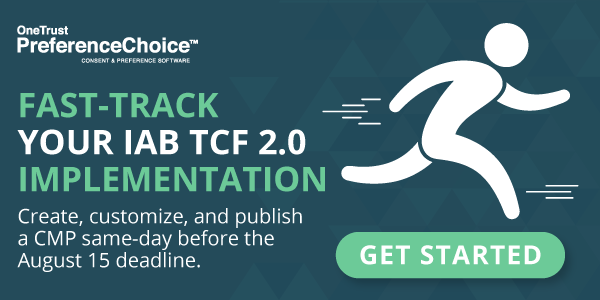 |
| Podcast Payday |
|
When journalists write about the streamers doing well amid the pandemic, we expect them to be talking about Netflix, Hulu and of course, Roku. But why isn't anybody talking about audio? For advertisers, podcasts are becoming a highly-engaging medium. According to eMarketer, 30% of listeners purchase something after hearing a sponsored ad on a podcast. |
| Spotify, iHeart and Sirius have all made heavy bets in the space recently. Spotify launched video podcasts on the heels of a colossal deal with podcaster extraordinaire Joe Rogan. iHeart Media is steadily building out original content offerings for its comedy podcast partnership with Will Ferrell. And SiriusXM acquired Stitcher podcasting company for $325 million in recent weeks. If the IAB report's numbers hold up, looks like these guys just might turn their investments into paydirt. We've got our money on Spotify becoming the Netflix of audio. But there's a major lesson in here for pubs too. It's time to get your podcast monetization strategy in play. For those of you who still don't, we're looking askance at you right now. 👀 |





